Following is the address of the Chief Justice of the Supreme Court, Daniel Mekobe Sone on the occasion of the reopening of the judicial year on Wednesday February 22, 2017 in Yaounde
Distinguished Guests,
Ladies and Gentlemen,
Pursuant to the provisions of section 33 of Law No. 2006/16 of 29 December 2006 to lay down the organization and functioning of the Supreme Court, the Supreme Court is holding a solemn court session this day in this court hall to mark the opening of the judicial year.
During this ceremony that has now become a traditional event, the Supreme Court shares with members of the judicial corps and its guests. A spiritual meal whose menu this year is “The resurgence of Private Justice and the Rule of Law in Cameroon.”
Private Justice is a protean and multifaceted expression.
First, it refers, in a contemporary world; to a subsidiary or complementary justice that supplements Public Justice.
Second, Private Justice refers to alternative methods of preventing and settling civil and commercial disputes both at the national and international levels. Here, we think of arbitration, mediation and conciliation.
It’s third accepted meaning takes us back to the history of criminal law, the history of our contemporary societies where originally, force was one of the privileged ways of imposing one’s rights or views. Speaking like La Fontaine in his fable The Wolf and the Lamb “might is always right”.
One would have thought that the time when man was only guided by his private instincts and when man was a wolf to another man had past; “Homo Homini Lupus”, as the Philosopher Thomas Hobbes used to say.
It appeared establishment of the Rule of Law had made a thing of the past the conduct that is pushing man back to his private state.
The Rule of Law is the cornerstone of every democratic society. From a constitutional standpoint, the relevant requirements of the international community are enshrined in our substantive law: legality, legal security, prohibition of arbitrariness, access to fair and independent courts, judicial control of administrative acts, respect for Human Rights, non discrimination and equality before the law.
The above notwistanding recently, there is a resurgence of many forms of Private Justice that threatens the very foundation of our Rule of Law. It is the third meaning of Private Justice that will be the focus of our meditation. Of course, one cannot but wonder why Private Justice is taking such a toll in Cameroon, a State governed by the rule of law.
Your Excellencies,
Ladies and Gentlemen,
The blatant application of the Talio law, “an eye for an eye and a tooth for a tooth” has become a daily phenomenon that goes on without us measuring its impact on our society. And yet, this phenomenon increases day by day.
Indeed, no day ends without a person being beaten up or knocked out senselessly in public for theft. The offence is usually not qualified. It is just theft, be it simple or aggravated, attempted or consummated. Sometimes, the suspect is still preparing to commit the offence and has not even started to execute it. The punishment is the same: flogging causing grievous harm or death. Here, it is all about the rage of the repression and the excessiveness of the sanction. Often, those who cause the death cannot even clearly explain what has been stolen.
It is the triumph of mob justice dominated by gregarious instinct.
In our towns and villages we are witnesses to the upsurge of dreadful crimes, ritual crimes directly or indirectly attributed to persons suspected of witchcraft. The soothsayer chooses to brand community leaders as authors of death or illnesses. Without considering the fairness of this accusation, the public subjects the alleged authors the alleged authors to mob justice. They are “judged” immediately and the judgment is enforced.
In the same vein, authors of unintentional killing are sometimes assaulted and their vehicles broken or burnt down, especially where the offender is a “mototaxi” rider. The gregarious instinct that tramples on such category of drivers prepares the ground for mob justice.
It is also worth mentioning employees who detain their employers or organize sit down strikes in order to make their claims heard. They do this in violation of labour rules.
Furthermore, some teachers desert their classrooms or amphitheatres to demand improvement in their working conditions or answers to their different claims.
Following in these same footsteps, some village people build barricades across the road to demand payment of compensation for their land expropriated for public utility, or royalties on forests or quarry exploited in their communities.
Mention can also be made of citizens who chase and inflict machete wounds on their neighbours because they do not agree on the boundaries of their respective farmlands.
Very often, landlords remove the windows or roofing sheets of their tenants to force them to pay their rents or quit the building.
Although not very frequent, it is not surprising to see human life reduced to nothingness (crimes of passion, settlement of scores, disguised assassinations made look like accidents or suicide).
Authors of such acts intend to administer justice in their own way. But which justice?
More seriously, the widow has no right to inherit the property of her late husband or even get her own share of the joint property. The family-in-law takes away the furniture, seizes the car, sells the house and orders the widow and her children to quit same. Where she has no children, she is requested to quit the premises as soon as possible, more often, just a few days after the funeral.
In addition to the examples referred to above, there is another atypical form of Private Justice I will willingly refer to as “media lynching”, the goal of which is to compromise the moral integrity of honest citizens or their private life.
In order to take revenge on an opponent or enemy or person not cherished, carefully edited pictures to compromise his honour or destroy his image are produced and broadcast shamelessly on social networks. The pictures are broadcast along with messages in which the victim is already tried and convicted. Some radio stations even turn themselves into a people’s court, forgetting that even freedom of the press has limits.
In our country today, no person is exempt from “media lynching”.
Examples of Private Justice in Cameroon abound and one should rightly question its upsurge.
Your Excellencies,
Ladies and Gentlemen,
Does Private Justice have any justification in a State governed by the rule of law? Does it have any justification in Cameroon?
It is an unacceptable drift in a State governed by the rule of law even though it requires us to both examine ourselves and better guide our actions.
How do authors of Private Justice in general and mob justice in particular justify their actions? They raise the following arguments:
First, for them, the exercise of justice does not offer any reassurance to the citizen and does not fulfil its mission efficiently. Judges do not convict offenders, or where they do, they give them very light penalties. Victims of theft or assault or defamation hardly bear the return of their tormentors to the quarters or village soon after they had been handed over to justice. They, therefore, intend to close the judicial loophole by administering justice themselves and ensuring that the offenders do not do further harm.
Second, Judicial Police Officers do not inspire confidence when conducting investigation. Some units are taking the shape of a real graveyard of complaints. Forces of law and order often react late.
Third, auxiliaries of justice (Lawyers, Sheriff/bailiffs, Notaries Public, and Experts) are also responsible in part, for the frustration of litigants.
Lawyers are alleged to process the files of their clients only upon payment of their fees. The poor do not enjoy their services.
Sheriff/Bailiffs are accused of executing court judgments in general and expulsions in particular without any touch of humanity. They are alleged to be reluctant in taking some actions.
In performing their duties, Notaries Public often forget that they hold a public office. They are alleged to be at the origin of many land disputes.
Experts are alleged to be disappointing in the exercise of their profession as their opinions vary significantly from one expert to another. An expert may, for example, hold that a bank account stands at CFAF200, 000,000, while another expert counters that the same bank account stands at CFAF5, 000,000.
Fourth, land disputes are the most recurrent in Cameroon. The same piece of land may have many land titles issued by the same service; withdrawal of a land title 50 years after issuance; individuals who are issued land titles on hectares of land where people have been settled for decades. Land disputes are to a large extent responsible for violent conflicts that disturb public peace.
Fifth, some compensation is paid only long after expropriation for public utility.
Sixth, teachers who do not fulfil their mission the goal of which is to guarantee young Cameroonians the right to education, claim that such is the only means of making their voice heard against the silence of their hierarchy.
There is thus a plethora of grievances raised by advocates of Private Justice that demand our personal attention and call on us to examine ourselves on how we serve the public. But before that, it is worthy to highlight the dangers of Private Justice.
Your Excellencies,
Ladies and Gentlemen,
Private Justice is an unacceptable drift in a State governed by the rule of law like Cameroon.
A State governed by the rule of law is organized and has appropriate structures to settle disputes arising in our society. Cameroon is governed by a large set of laws from within (laws, decrees, orders) and from without (CEMAC, OHADA, Common Law, African Charters and UN Conventions) to oversee life in the country. Law No. 2006/15 of 29 December 2006 to lay down judicial organization in Cameroon as amended by Law No. 2011/27 of 24 December 2011 clearly provides in “section 2 (1), “Justice shall be delivered throughout the Republic in the Name of the People of Cameroon.
(2) Judicial Power shall be exercised by the Supreme Court, Courts of Appeal and Tribunals.”
Section 3 of same law provides: “Judicial Organization shall comprise:
- the Supreme Court;
- Courts of Appeal;
- the Special Criminal Court;
- lower administrative courts;
- lower audit courts;
- Military Tribunals;
- High Courts;
- Courts of First Instance;
- Traditional law courts.”
The citizen should bring his action before these Institutions in compliance with the said laws. He should rather not resort to violence or any acts in violation of the law.
The President of the Republic, His Excellency Paul Biya, Chair of the Higher Judicial Council, in his end-of-year address to the nation quite rightly said: “Cameroon is a democratic country, a State governed by the rule of law. Its problems should be resolved within the ambit of the law…” Therefore, all disputes should be brought before Institutions recognized by the Constitution, and litigants should abide by the positive or negative judgment delivered by them.
In a State governed by the rule of law and which is shared by contemporary democratic countries, the State shall guarantee the security of persons and property. This is the result of a social contract.
That is why “no one may take the law into his hands.” In common parlance, you cannot be judge and party in your own matter as clearly stated by one author :
“The heart of man does not contain only instincts of generosity and peace; it also contains egoism and passion.”
However, there are instances where Private Justice is authorized exceptionally by law. An example is during lawful defence, state of necessity, provocation provided for by sections 84, 85, and 86 of the Cameroon Penal Code. Another example is exoneration of civil liability due to Act of God.
Other than the cases provided for by law, all other forms of Private Justice or mob justice are sanctioned by the Cameroon legislator and the courts.
Thus, those who lynch a thief, commit unintentional killing, practise witchcraft may be prosecuted for slight harm, simple harm, assault occasioning grievous harm, assault occasioning death and as co-offenders or accessories to murder. In the quiet of his chambers, the judge may grant him mitigating circumstances for his intention to dispense justice.
It is not a leeway granted offenders but a reminder of the supremacy of the law.
Section 8 of the Criminal Procedure Code that enshrines the provisions of Article 9 of the Declaration of the Rights of Man and the Citizen, of Article 11 of the Universal Declaration of Human Rights provides, “Any person suspected of having committed an offence shall be presumed innocent until his guilt has been legally established in the course of a trial where he shall be given all necessary guarantees for his defence…”
That is why landlords who take the law into their hands against their tenants may be prosecuted for trespass, destruction, disturbance of quiet enjoyment, and even theft. There is no exaggeration in such court action even though the conduct of the landlord is humanly understandable.
The goal here is not to encourage malicious tenants but to request landlords to report to the competent authorities in order to recover their rents or have the insolvent tenant quit.
Similarly, members of the family-in-law who dispossess the widow of her late husband’s property may be prosecuted for acts of Private Justice.
It is important to ...
Cet article complet est réservé aux abonnés
Déjà abonné ? Identifiez-vous >
Accédez en illimité à Cameroon Tribune Digital à partir de 26250 FCFA
Je M'abonne1 minute suffit pour vous abonner à Cameroon Tribune Digital !
- Votre numéro spécial cameroon-tribune en version numérique
- Des encarts
- Des appels d'offres exclusives
- D'avant-première (accès 24h avant la publication)
- Des éditions consultables sur tous supports (smartphone, tablettes, PC)
Reactions
De la meme catégorie
Security In The South West : Army Chief of Staff On Field Control In Buea
- 18 avril 2024 11:55
- 0 likes







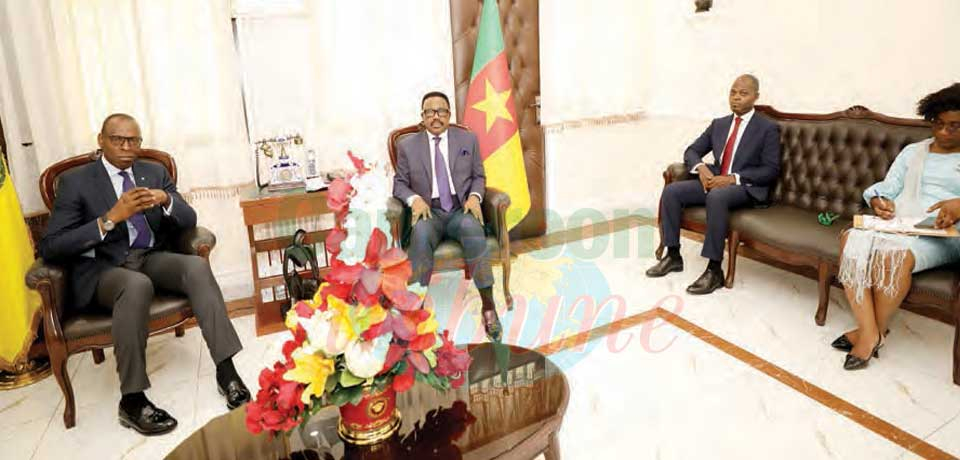
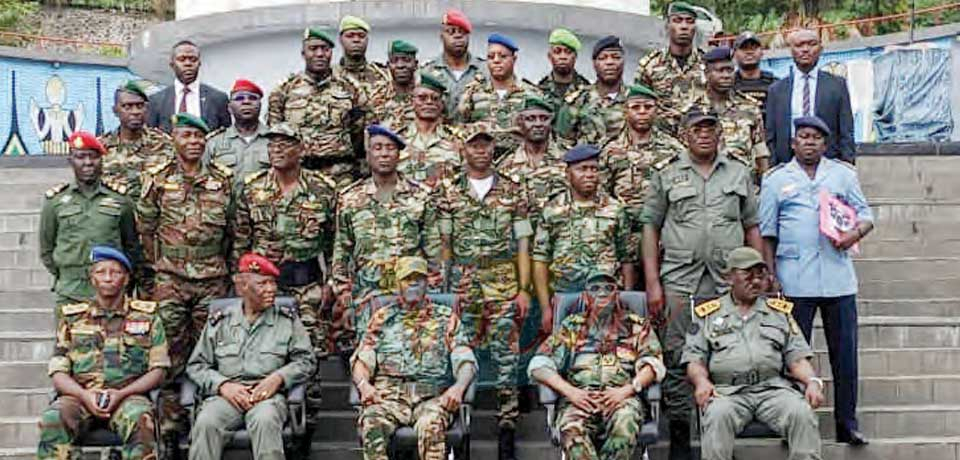
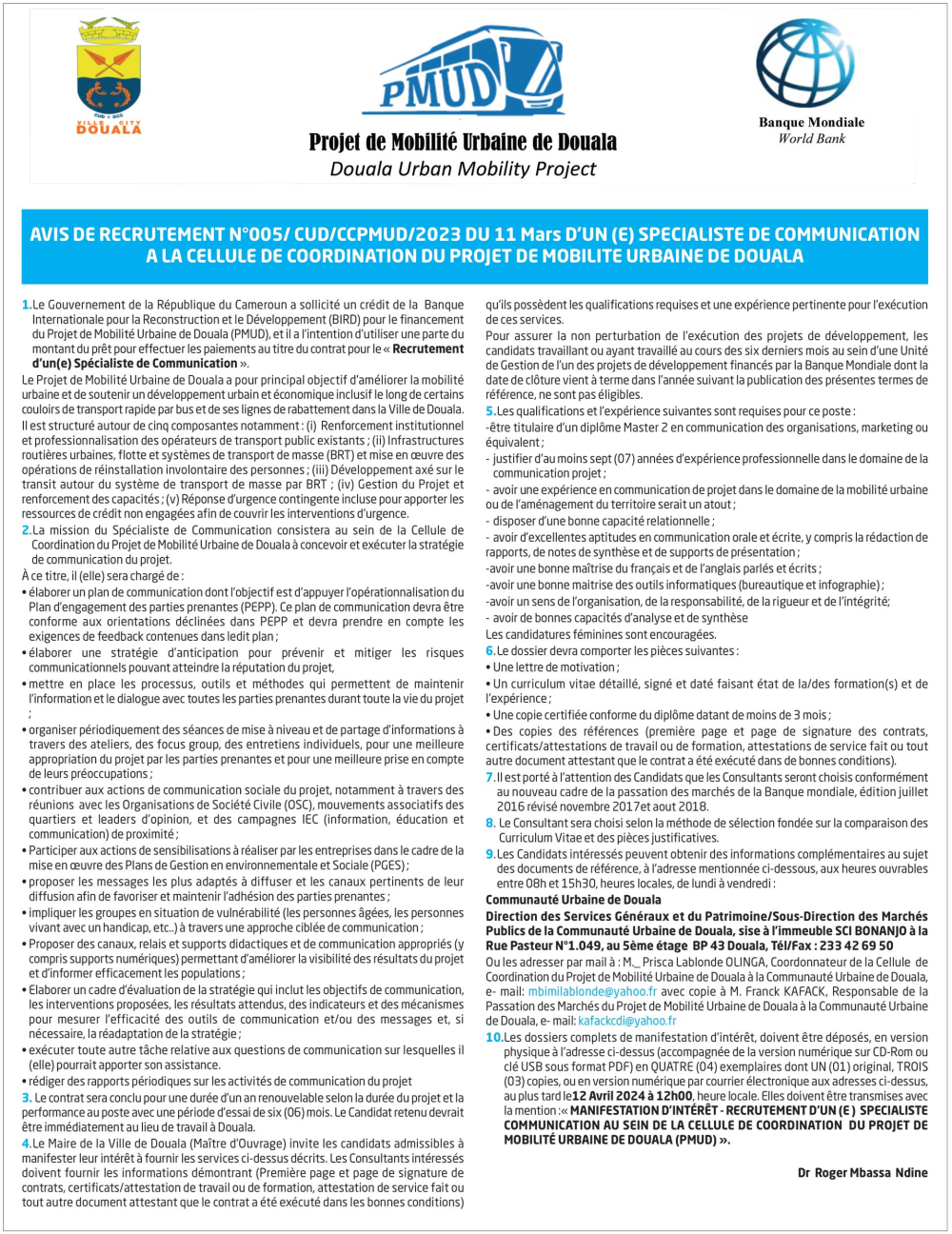
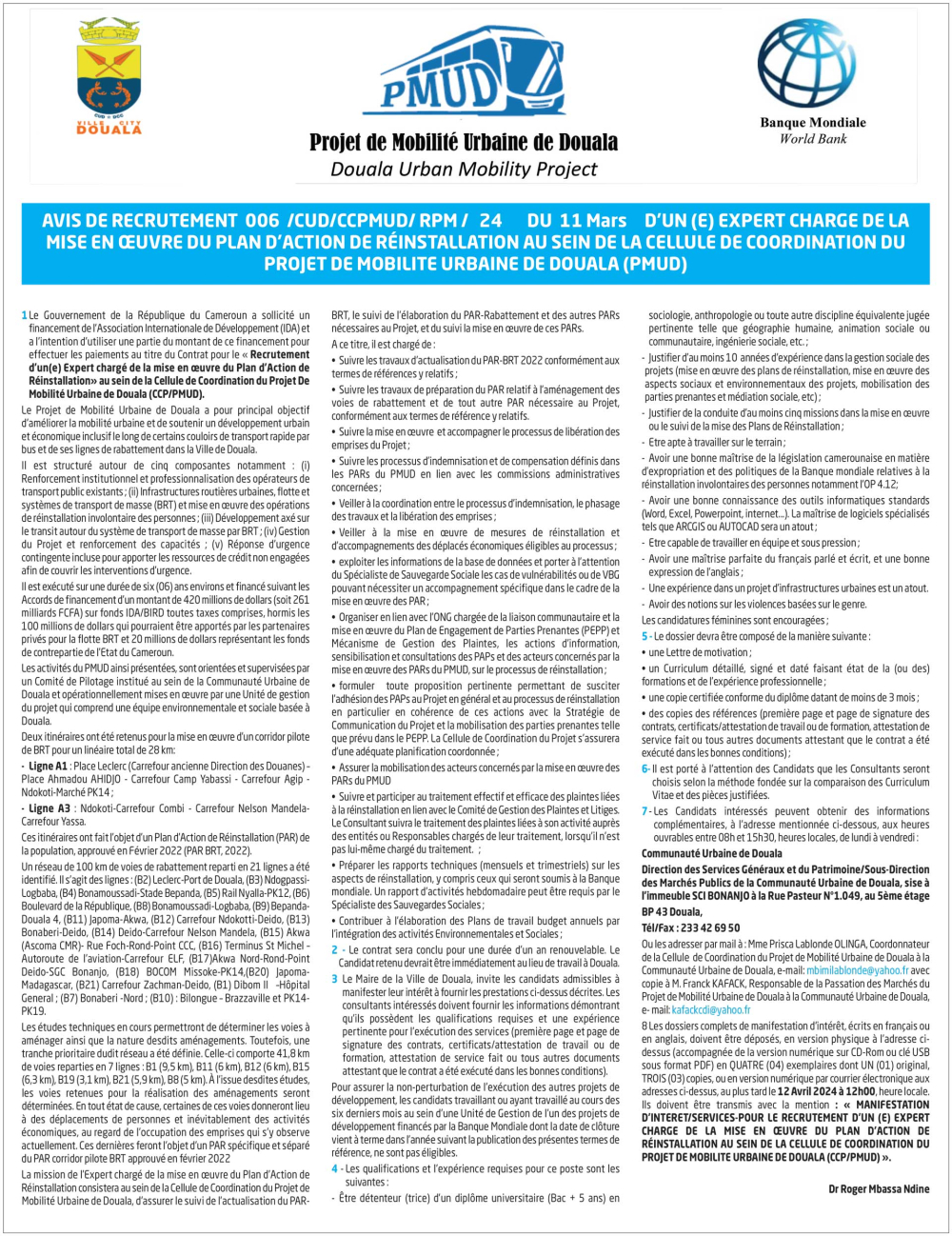
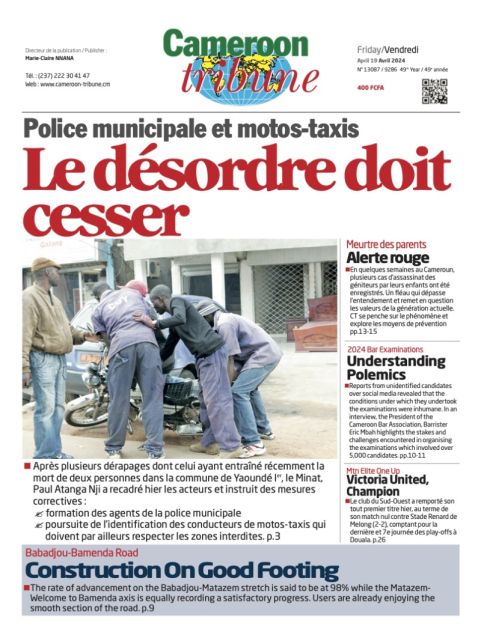




Commentaires